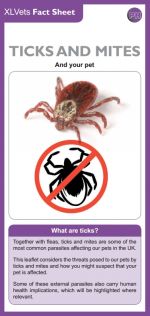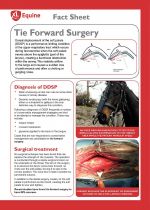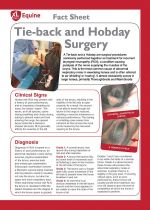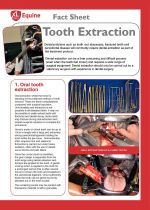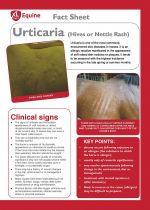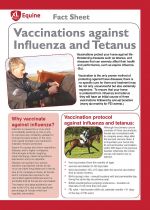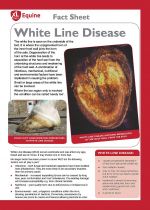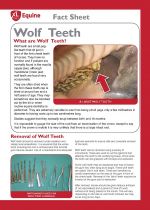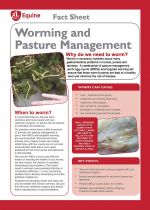Factsheets -
Below are Word and PDF files of our Factsheets. You will need Adobe Reader to view the PDF files - if you need to download Adobe Reader please click here.
Please note: some of these factsheets are several pages long and are large files, so please be patient when downloading!
Ticks and Mites
Together with fleas, ticks and mites are some of the most common parasites affecting our pets in the UK. This leaflet considers the threats posed to our pets by ticks and mites and how you might suspect that your pet is affected. Some of these external parasites also carry human health implications, which will be highlighted where relevant.
Tie Forward Surgery
Dorsal displacement of the soft palate (DDSP) is a performance-limiting condition of the upper respiratory tract which occurs during fast exercise when the soft palate moves above the epiglottis (part of the larynx), creating a functional obstruction within the airway. This restricts airflow to the lungs and causes a sudden loss of performance and often a choking or gurgling noise.
Tie-back and Hobday Surgery
A Tie-back and a Hobday are surgical procedures commonly performed together as treatment for recurrent laryngeal neuropathy (RLN), a condition causing paralysis of the nerve supplying the muscles of the larynx. This is the most common cause of abnormal respiratory noise in exercising horses and is often referred to as ‘whistling’ or ‘roaring’. It almost exclusively occurs in large horses, primarily Thoroughbreds and Warmbloods
Tooth Extraction
Dental problems such as tooth root abscesses, fractured teeth and periodontal disease will commonly require dental extraction as part of the treatment protocol.
Dental extraction can be a time consuming and difficult process (even when the teeth feel loose!) and requires a wide range of surgical equipment. Dental extraction should only be carried out by a veterinary surgeon with experience in dental surgery.
Tuberculosis - A concern for all animals
bTB is caused by Mycobacterium bovis, a bacteria that can infect many different animals. It is spread either by inhaling or consuming the bacteria and is usually associated with animals living in enclosed spaces. It can also be spread through contaminated surfaces such as feed troughs and pasture. The disease causes weight loss, coughing, fever, lethargy and ultimately, death.
Urticaria
Urticaria is one of the most commonly encountered skin diseases in horses. It is an allergic reaction manifested in the appearance of soft raised skin nodules or plaques.
Vaccinations against Influenza and Tetanus
Vaccinations protect your horse against life-threatening diseases such as tetanus, and diseases that can severely affect their health and performance, such as equine influenza (flu).
White Line Disease
The white line is seen on the underside of the foot. It is where the unpigmented horn of the inner hoof wall joins the horn of the sole.
Wolf Teeth
Wolf teeth are small peg-like teeth that sit just in front of the first cheek teeth of horses.
Worming and Pasture Management
Why do we need to worm?
Worms in excessive numbers cause many gastrointestinal problems in horses, ponies and donkeys. A combination of pasture management, worm egg counts (WECs) and targeted worming will ensure that these worm burdens are kept to a healthy level and minimise the risk of disease.
